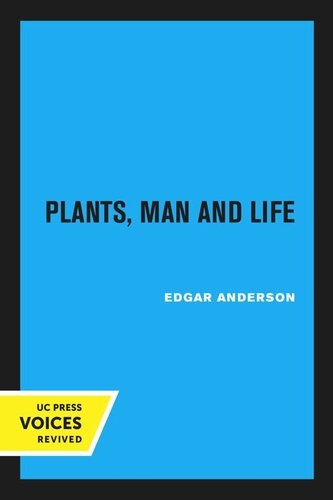

Most ebook files are in PDF format, so you can easily read them using various software such as Foxit Reader or directly on the Google Chrome browser.
Some ebook files are released by publishers in other formats such as .awz, .mobi, .epub, .fb2, etc. You may need to install specific software to read these formats on mobile/PC, such as Calibre.
Please read the tutorial at this link: https://ebookbell.com/faq
We offer FREE conversion to the popular formats you request; however, this may take some time. Therefore, right after payment, please email us, and we will try to provide the service as quickly as possible.
For some exceptional file formats or broken links (if any), please refrain from opening any disputes. Instead, email us first, and we will try to assist within a maximum of 6 hours.
EbookBell Team

5.0
20 reviewsWhat's the difference between wild and cultivated plants? Why has the study of cultivated plants been neglected, and why is so little known about the common plants that have endured since ancient times? This innovative ecological survey examines the long history of human and plant interactions. Author Edgar Anderson, a distinguished botanist, analyzes suggestive pieces of evidence in a reader-friendly narrative that recounts the origins and evolution of plant life with all the intrigue of a good detective story. In tracing the development of human influence on plant life, Anderson focuses particularly on crops, which he reveals as having started out as weeds--hybrids that sprang up from the dump heaps and gardens of early humans. His investigation of the tangled and continuing history of weeds and cultivated plants ranges from autumnal European greens and the American sunflower to backyard landscapes in developing countries, where fruit trees, flowers, vines, and vegetables mingle with the sources for fibers, poisons, narcotics, and other drugs.